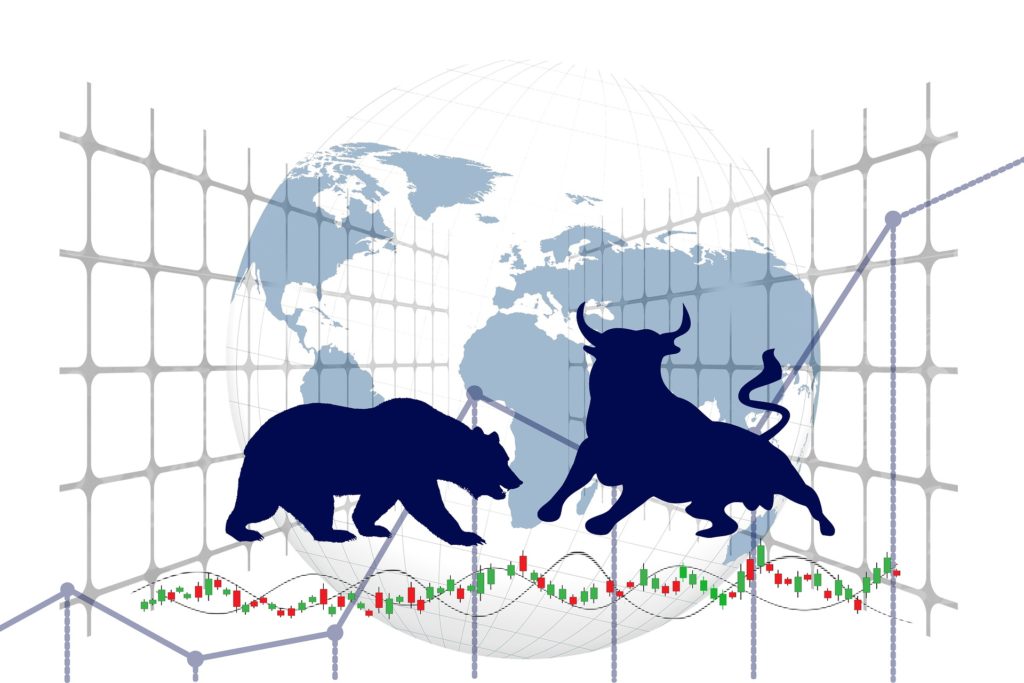The market’s recent activity has increased angst among investors. Russia’s attack on Ukraine adds to the concern. Many investors were already on edge because of higher inflation, and the likelihood the Fed will raise interest rates.
These factors offset strong fourth-quarter earnings growth for companies in the S&P 500 Index. According to FactSet, through February 11th, companies in the S&P 500 have achieved earnings growth exceeding 30% for the fourth straight quarter. For the full year, earnings have grown more than 45%.
At the same time, those growth rates represent the past. We should also view the market with expectations of what may happen in the future. Factors such as those cited in the first paragraph have likely limited the first-quarter outlook. FactSet reports that the highest percentage (71%) of companies have issued negative earnings guidance since 2019’s third quarter (73%). As a frame of reference, the S&P 500 rose almost 13% during that quarter. This should remind us why it’s so hard to forecast market performance.
Investing and Our Emotions
When we invest, we should try and keep our emotions out of the decision-making process. I often say the two worst things investors can do are buy high and sell low. Fear causes us to sell low. Greed leads us to buy high. In other words, we do the exact opposite of what we should. This reminds me of this short video in which Carl Richards discusses “Why Investor Behaviour Needs to Change.” He summarizes our tendency to buy high this way:
“I show up at the Audi dealership and say I need a new A6. The guy says, ‘geez, I can’t believe your luck. We just marked the car up 20%.’ And you say, awesome, I’ll take two.”
Remember that if you sell out your portfolio, you lock in any losses. You also increase the chances that you miss the recovery.
This article shares a chart from a Bank of America study showing what happened to investors who missed the S&P 500’s 10 best days for each decade since the 1930s. It showed their returns would be significantly lower (28% vs. 17,715%) than those of investors who held through each downturn. It’s also important to note that the market’s best days typically follow the largest drops. In other words, panic selling can lead to missed opportunities on the upside.
Even the best and most experienced traders find it difficult to successfully time the market. That means the better approach involves staying invested. Buy and hold investing may not be as exciting as trading, but it has a better track record.
Some Historical Perspective
Historically, conflicts involving major world powers have tended to increase the market’s short-term volatility. But the duration of the related market damage has leaned toward the short- rather than the long-term. In other words, it has equated to a market correction – a 10% decline – or a bit more. That said, largely due to the factors cited above a market correction was already underway.
In some cases, such conflicts have caused the market to fall even more than 10%. For example, we saw bear market-type declines – a 20% or more drop – during broader regional conflicts such as World War II or the Arab/Israel war in 1973. In most cases, recoveries have been relatively swift. The direct, long-term economic impact has also been less than feared.
Potential Economic Impact
From an economic perspective, there are three potential areas of concern. The first relates to crude oil and natural gas prices, particularly for European markets dependent on Russia due to their geographic proximity and pipeline relationships. (About 40% of European natural gas comes from Russia.)
The second relates to grain, especially wheat. Russia and Ukraine combine to produce nearly 25% of the world’s wheat. Current supply chain disruptions have already led to increased food costs.
The third area relates to the computer chip industry. According to estimates, more than 90% of U.S. semiconductor-grade neon supplies come from Ukraine. Plus, 35% of U.S. palladium is sourced from Russia.
While this message focuses on the market, we are concerned for those who are suffering from the impact of military aggression in Ukraine. Despite the noted concerns, expectations are that any economic disruption would be fairly localized. When added to any punitive sanctions on Russia, the economic impact would likely be more impactful in the region itself than on the rest of the global economy.
A Look Ahead
Keep in mind that no investment is risk-free. That includes cash, particularly in a time of elevated inflation. If you fail to take some risk in your portfolio, you face the biggest of all risks, falling short of your goals and a loss of purchasing power. The best you can do is understand the risks of each asset type and then create a diversified portfolio. As a financial advisor, I endeavor to do that for clients. With that in mind, the best approach is to remain focused on the long-term and avoid acting rashly.
We remain optimistic that our world’s leaders will successfully navigate this crisis as they have many other times in the past. We don’t profess to have any special ability to predict how markets will perform over the next several weeks or months. We take some comfort in knowing that others can’t either.
We maintain our positive long-term market view. If we didn’t have that outlook, we wouldn’t recommend that you stay fully invested.
For further thoughts about market volatility and what you can do when it increases, please see this post from a few weeks ago.
As always, please reach out if you have any questions or if there is anything I can do to help.
Our practice continues to benefit from referrals from our clients and friends. Thank you for your trust and confidence.
We hope you find the above post valuable. If you would like to talk to us about financial topics including your investments, creating a financial plan, saving for college, or saving for retirement, please complete our contact form. We will be in touch. You can also schedule a call or a virtual meeting via Zoom.
Follow us: Twitter Facebook LinkedIn
Please note. We post information about articles we think can help you make better money-related decisions on LinkedIn, Facebook, and Twitter.
For firm disclosures, see here: https://apprisewealth.com/disclosures/




